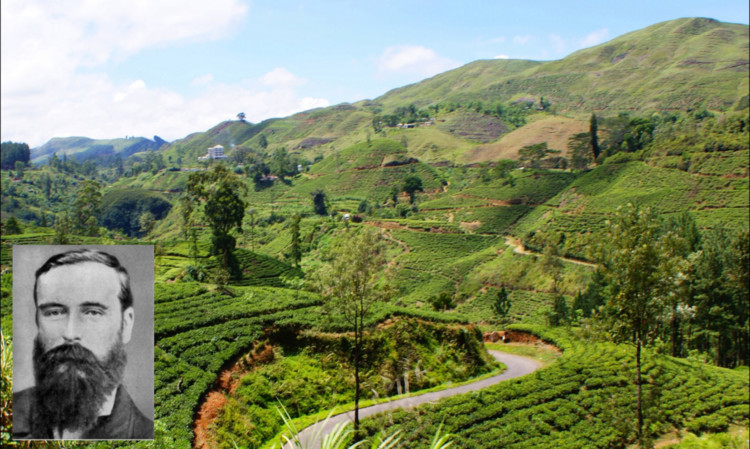The global spirit of a 19th Century Scot who saved Sri Lanka’s economy will infuse Scotland’s first tea festival next month.
Fordoun man James Taylor brought tea to Sri Lanka, then Ceylon, in the mid-1800s after disease destroyed the country’s coffee crops and paralysed its economy.
Despite being known as the “father of tea” in that country since, his name and contribution to global drinking habits have been lost in time elsewhere.
The production of Ceylon tea is worth £400 million to the region’s economy each year and organisers hope Scotland’s Tea Festival will attract thousands of tea-curious visitors to the Mearns over three days, bringing their own economic boost.
Albert Donald, one of the organisers, said the events have the backing of the Sri Lankan High Commission in London, with funding secured from local and national sources.
He said: “This is quite a significant and exciting event and we hope to attract a large turnout to the various events, not only from the immediate area but beyond.”
Taylor left the Mearns for Ceylon at the age of 17 and worked on a coffee plantation but the land at the farm was blighted by disease and they could no longer grow coffee.
Entrepreneur Taylor then established a tea factory and built up the country’s new main export.
Mr Donald added: “This has been an important part of the economy there and Taylor’s contribution is widely recognised there to this day, where he is known as the ‘father of tea’.
“He died in Ceylon and is buried in the city of Kandy. He continues to be revered in Sri Lanka and last year a statue in his memory was unveiled by the British High Commissioner.
“Though he is well recognised in Sri Lanka, little is known of him in his homeland.
“And as this is the year of Scotland’s Homecoming, the Dickson Hall management committee in Laurencekirk decided to host an event to acknowledge and recognise Taylor in the country of his birth.
“From that, the idea of a tea festival Scotland’s Tea Festival was born.”
The festival will launch at Auchenblae Village Hall on August 22 with a heritage display and tours to the cottage in which he was raised.
There will be a formal dinner in the Dickson Hall featuring a Taylor researcher from New Zealand and Sir Tom Devine, one of Scotland’s leading historians, will speak.
There will be a range of events held on Saturday August 23 in different locations in Laurencekirk with tastings, markets, and talks among a variety of family activities and the following day, Sunday August 24, church connections between Scotland and Sri Lanka will be examined during services.
Dickson Hall development officer Marion Robson, one of the organisers, said: “We have also now confirmed that a tea manufacturer from Sri Lanka will definitely be coming over to take part in the festival.”
For more details on the festival contact Ms Robson on 01561 376896 or visit www.scotlandteafest.co.uk
